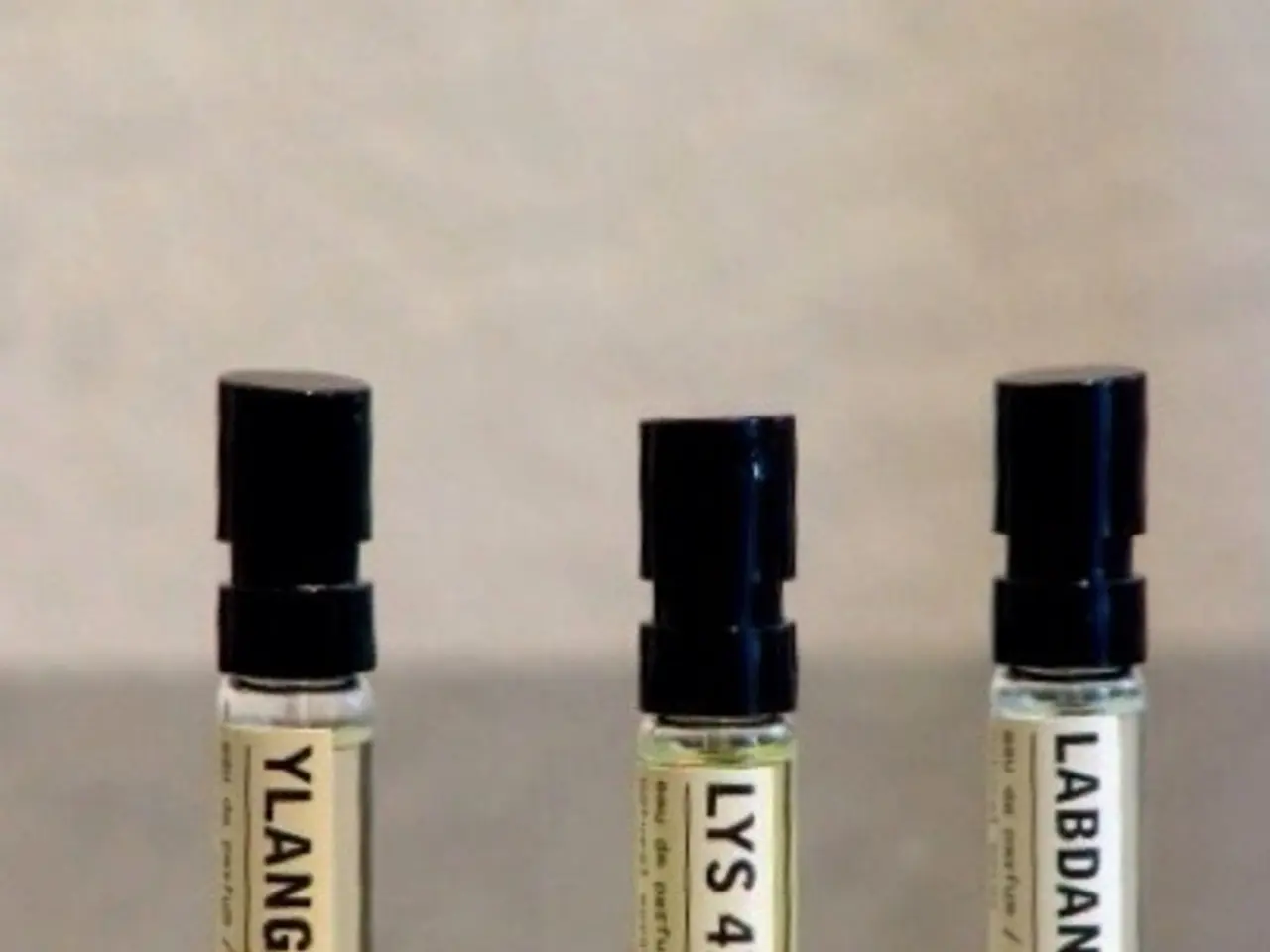Perfume Options Explained: Unscented vs. Fragrance-Free
In the world of personal care products, understanding the difference between fragrance-free and unscented items can be crucial for those with sensitive skin, allergies, or conditions like eczema.
Firstly, it's essential to clarify that "Fragrance Oil / Perfume Oil" is typically synthetic and used for scent only. The term "Fragrance / Parfum" on a product label can contain dozens or even hundreds of undisclosed chemicals. This is why choosing between fragrance-free and unscented products is critical.
Fragrance-free means the product contains no added fragrance, whether synthetic or natural. There are no masking agents, and nothing is added for the sake of scent. Fragrance-free detergents are less likely to leave irritating residues on clothing and bedding. Fragrance-free body washes are gentler on the skin and beneficial for daily use and for children or those with compromised skin barriers.
On the other hand, unscented products do not have added perfumes meant to give a scent, but they often do include masking agents or chemicals to neutralize or cover up the natural odors of other ingredients. These masking agents are technically fragrances and can contain multiple undisclosed chemicals, some of which may cause skin irritation, allergic reactions, or other health issues.
To find true fragrance-free products, look for "Fragrance-Free" or "No Added Fragrance" on the front and back labels, read the full ingredient list, check for third-party certifications, and contact the brand for clarification. Always checking ingredient labels can help distinguish between fragrance-free and unscented products, as “unscented” is not synonymous with “fragrance-free.”
It's also important to note that "Aroma" is often used in natural or food-grade products but still typically refers to added fragrance compounds. Botanical Extracts like lavender, eucalyptus, or citrus extracts may be added for scent, not function, and can still act as allergens.
In terms of health effects, fragrance compounds found in both scented and unscented (masking agent containing) products can irritate sensitive skin, trigger allergic reactions, or worsen conditions like eczema. Some fragrance chemicals, especially synthetic ones, may act as endocrine disruptors or provoke respiratory issues such as asthma, headaches, or neurological symptoms upon inhalation.
Therefore, for individuals prone to allergies, sensitivities, or health concerns linked to fragrance exposure, fragrance-free products are safer because they avoid all fragrance-related ingredients, while unscented products may still pose risks due to hidden masking agents.
Understanding what fragrance-free means puts consumers in control of what they bring into their home and onto their body. By making informed choices, we can reduce the risk of irritation, allergic reactions, and potential health issues associated with fragrances.
- Due to the potential risks associated with fragrance compounds, seeking education-and-self-development about personal-care products is crucial for maintaining health-and-wellness.
- Unscented products, while marketed as an alternative to fragrance-free items, may still include masking agents, which can cause skin irritation or allergies, making education in education-and-self-development vital.
- In the realm of health-and-wellness and skin-care, substituting fragrance-free products for those with added fragrances can provide a safer and healthier lifestyle choice.
- In the world of science, researching and understanding the impact of ingredients like fragrances on food and health can contribute to overall well-being, incentivizing self-education in education-and-self-development.
- Partnering with health-and-wellness brands devoted to creating fragrance-free products can support one's pursuit of a healthier lifestyle, exemplifying the merging of business and education-and-self-development for personal growth and well-being.




